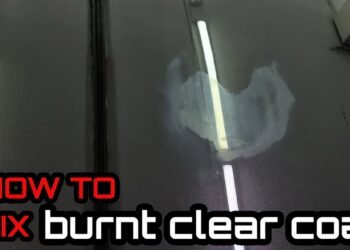If you own a Nissan Rogue, you might be wondering if your vehicle is affected by the recent transmission recall. Transmission issues can be more than just an inconvenience—they can put your safety at risk and lead to costly repairs.
That’s why it’s crucial for you to know exactly what this recall means, which model years are impacted, and what steps you should take next. You’ll find clear, straightforward information to help protect your Rogue and keep you driving with confidence.
Don’t wait—your safety and peace of mind depend on staying informed about the Nissan Rogue transmission recall. Keep reading to learn everything you need to know.

Credit: carfromjapan.com
Recall Details
Nissan has issued a recall for certain Rogue models due to transmission problems. These issues affect the vehicle’s performance and safety. The recall aims to fix these defects to prevent accidents or further damage.
The recall covers multiple model years with different transmission concerns. Nissan offers repairs and replacements free of charge for affected vehicles. Owners should stay informed about their vehicle’s status and symptoms.
Transmission Issues By Year
Models from 2008 to 2013 often faced premature transmission wear. Owners reported slipping gears and delayed shifting during driving. For 2014 to 2018 models, CVT failures became more common, causing jerky movements and overheating. The 2019 and 2020 Rogue models showed fewer problems but still had some CVT concerns under warranty.
Nissan continues to monitor and address these issues with updated software and hardware fixes.
Other Related Recalls
Besides transmission recalls, Nissan issued alerts for rearview camera failures. Some vehicles showed a blank screen while reversing, posing safety risks. Engine bearing defects also led to potential engine failure in some models. Seat belt pretensioners were recalled for incorrect manufacturing, affecting crash safety.
Owners should check for all recalls to ensure their vehicle is safe and properly maintained.
Symptoms To Watch For
Watch for unusual noises from the transmission like whining or clunking. Delayed or rough gear changes signal possible transmission trouble. Overheating warnings on the dashboard need immediate attention. Jerking or slipping while driving can indicate CVT issues. Also, check if the rearview camera screen goes blank when reversing.
Early detection helps avoid costly repairs and keeps you safe on the road.

Credit: www.reddit.com
Affected Models
The Nissan Rogue has faced transmission issues that led to a recall affecting certain models. Knowing which models are affected helps owners stay informed and take action if needed. Nissan issued the recall to address problems mainly related to the Continuously Variable Transmission (CVT).
Not all Rogue models have the same risk. Some years show more frequent transmission failures. Understanding which models are affected can protect drivers from unexpected breakdowns.
Years With Known Problems
The transmission recall primarily targets Nissan Rogue models from 2014 to 2018. These years reported the most cases of CVT slipping and failure. The early models, from 2008 to 2013, had fewer transmission complaints but faced other issues.
Models from 2019 and 2020 have improved transmissions but still report some minor problems. Nissan has worked to fix software glitches and mechanical defects in newer versions. Still, owners of these models should watch for any unusual transmission behavior.
Reliable Generation Overview
The latest generation of the Nissan Rogue is generally more reliable. Nissan improved the CVT design and software controls. This generation shows fewer transmission failures and better overall performance.
Some owners of the new generation reported occasional issues with the CVT and transfer case. These problems usually occur under warranty and can be fixed by dealers. This generation stands out as the most dependable for buyers seeking a used Rogue.
Recall Process
The Nissan Rogue transmission recall process ensures vehicle safety and proper repairs. It involves clear steps to inform owners and fix the issue at no cost. Understanding this process helps owners act quickly and keep their vehicles safe on the road.
Notification Steps
Nissan sends recall notices by mail to affected owners. The letter explains the problem and the next steps. Sometimes, email or phone alerts may also be used. Owners should read the notice carefully and follow instructions. This helps avoid delays in repairing the transmission.
Checking Your Vehicle Status
Owners can check recall status online using their Vehicle Identification Number (VIN). This quick step confirms if the Nissan Rogue needs service. The official Nissan website or government recall sites provide this tool. Checking early can prevent transmission failure risks. It gives peace of mind before visiting a dealer.
Dealer Assistance
Authorized Nissan dealers handle recall repairs free of charge. They inspect and repair the transmission as needed. Scheduling an appointment is usually required but sometimes walk-ins are accepted. Dealers use genuine parts and follow Nissan’s repair guidelines. After service, the vehicle is tested to ensure safety and performance.
Transmission Problems
Transmission problems in the Nissan Rogue have caused concern among many owners. These issues can affect driving safety and vehicle performance. Understanding the common failures, repair options, and preventive measures can help drivers manage these problems effectively.
Common Failures
Nissan Rogue transmission problems often involve the CVT (Continuously Variable Transmission). Some common failures include slipping gears, delayed acceleration, and unusual noises. Owners have reported harsh shifting and sudden loss of power. These issues usually appear in models from certain years and mileage ranges. The CVT belt or pulleys may wear out prematurely. Software glitches can also disrupt smooth shifting.
Repair Options
Repairing Nissan Rogue transmission problems depends on the issue’s severity. Minor problems may require a transmission fluid change or software update. More serious failures might need a transmission rebuild or replacement. Nissan dealers often provide warranty coverage for recalled vehicles. Independent mechanics can also perform repairs but check their experience with CVT systems. Early diagnosis helps avoid costly repairs later.
Preventive Measures
Preventing transmission problems starts with regular maintenance. Check and replace transmission fluid as recommended in the owner’s manual. Avoid aggressive driving that strains the transmission. Listen for unusual sounds and feel for changes in shifting. Address small issues immediately before they worsen. Keep software updated through dealer service visits. These steps help extend transmission life and improve vehicle reliability.
Legal Actions
Legal actions have followed the Nissan Rogue transmission recall. Many owners faced transmission failures causing safety concerns. These issues led to lawsuits and official settlements. The legal process aims to hold Nissan accountable and provide compensation.
Understanding the key lawsuits and settlement details helps affected owners know their rights. Below are important facts about the legal actions tied to the recall.
Key Lawsuits
Several lawsuits target Nissan over defective Rogue transmissions. Plaintiffs claim Nissan ignored early warnings about transmission problems. The suits argue the company failed to fix or warn customers in time. Many focus on the continuously variable transmission (CVT) failures causing sudden loss of power. These cases seek damages for repair costs and safety risks.
Class action lawsuits allow groups of owners to join together. This strengthens their case and simplifies legal proceedings. Some lawsuits also accuse Nissan of breaching consumer protection laws. Courts are reviewing evidence from vehicle experts and owner testimonies.
Settlement Information
Nissan has agreed to settlements in some cases to avoid prolonged trials. Settlements often include free repairs or partial refunds for affected owners. Nissan may also offer extended warranties for transmission parts. These agreements aim to compensate customers while limiting legal costs.
Settlement offers vary by case and region. Owners involved in lawsuits should review official notices carefully. Accepting a settlement usually means giving up the right to sue later. Therefore, understanding terms is crucial before agreeing.
Resources
Finding reliable resources can help you understand the Nissan Rogue transmission recall better. These tools offer accurate, updated information. Use them to check recall status, vehicle value, and real user experiences. Staying informed helps you make smart decisions about your vehicle.
Nhtsa Recall Lookup
The National Highway Traffic Safety Administration (NHTSA) website lets you check recalls by your vehicle’s VIN. Enter your Nissan Rogue’s VIN to see if it is part of the transmission recall. This official source provides details on recall dates, affected parts, and repair instructions. It is the most trusted place for recall information.
Kelley Blue Book Tools
Kelley Blue Book offers tools to check your Nissan Rogue’s market value. Recall issues can affect resale prices, so knowing your car’s worth is important. Use their valuation tool to get an estimate based on your vehicle’s condition, mileage, and recall status. This helps you plan your next steps wisely.
Community Feedback
Online forums and social media groups provide real stories from Nissan Rogue owners. Reading about others’ experiences with the transmission recall gives practical insights. Community feedback highlights common problems, repair times, and dealer support quality. These honest reviews help you understand what to expect during the recall process.

Credit: carfromjapan.com
Frequently Asked Questions
Does The Nissan Rogue Have A Recall On Transmission?
Some Nissan Rogue models have transmission-related recalls, mainly involving CVT software or hardware issues. Check your VIN on NHTSA for current recalls. Contact a Nissan dealer for inspection or repairs if your vehicle is affected.
What Years Are The Transmission Problems With Nissan Rogue?
Nissan Rogue transmission problems mainly affect 2008–2013 models. Some 2014–2018 models also report CVT issues. Newer models show fewer problems.
What Is The Recall On The Nissan Rogue?
The Nissan Rogue recall involves engine bearing defects, rearview camera software errors, and seat belt pretensioner issues. Nissan provides inspections and repairs. Check recalls using your VIN on NHTSA or Kelley Blue Book websites. Contact your dealer for updates and repair appointments.
What Is The Transmission Lawsuit On The Nissan Rogue?
The Nissan Rogue transmission lawsuit targets CVT failures causing shifting, stalling, and transmission damage in certain model years. Owners claim defects reduce vehicle safety and reliability. Nissan faces claims for repairs, replacements, or compensation related to these transmission issues.
Does The Nissan Rogue Have A Transmission Recall?
Yes, certain Nissan Rogue models have a transmission recall due to CVT issues.
Conclusion
Nissan Rogue transmission recalls highlight important safety concerns. Regularly check your vehicle for recall notices. Visit the official Nissan website or NHTSA to verify your car’s status. Promptly addressing recalls keeps you safe on the road. Stay informed and act quickly if your Rogue is affected.
Your safety depends on timely repairs and updates. Don’t ignore any signs of transmission trouble. Keeping your Nissan Rogue well-maintained ensures better driving performance. Awareness helps prevent costly repairs and accidents later.

















